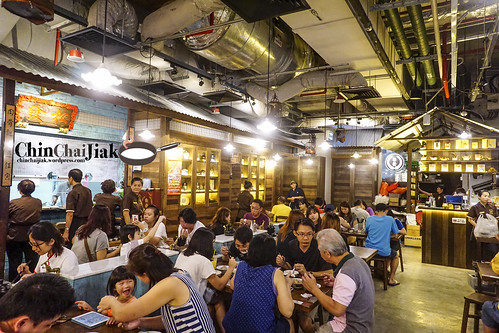These days, there isn't a day that passes without some tragic news. Terrorist attacks, mass killings and homicidal "lone wolves" are making newspaper headlines and every government is beefing up security measures to avert another tragedy. However, even the best security system cannot guarantee absolute protection against the fanatical forces that wreak havoc in the lives of ordinary folks and cause mayhem in peaceful societies around the world. Only recently, we were told to brace ourselves for the day when our security net may be breached (Read HERE). Besides concentrating our efforts on security measures and enhancing civil, police and military vigilance, we need to ask what else we can do in our struggle against the impact of ideological radicalisation and extremism.
In the deep recesses of our subconscious minds lie a powerful inhibitor of wrong-doings. Each time we are about to do something that we shouldn't be doing or hold back from doing something that we should, it makes us feel queasy. When this queasy feeling intensifies, we feel a prevailing sense of guilt or regret and then promise ourselves not to let it happen again. That natural inhibitory reflex inside us is our "conscience" and it also has the power to make us do good. In psychoanalytic theory, our conscience is identified as our "super-ego", that part of our subconsciousness that aims for human perfection.
As people live in communities sharing common values and aspirations, those innate feelings that restrain us from doing harm and spur positive behaviours in troubling situations, develop into a sort of social conscience. A moral compass that we rely upon to navigate through many moral dilemmas in our lives. This social conscience encapsulates social consciousness, the latter being a form of conscious awareness of our society's well-being that is merely knowledge devoid of the energising force of social conscience.
A strong social conscience will move us to respond to our sense of right and wrong. It makes us display our best human values, those that build the best traditions of a mature, peace-loving society. In one online dictionary definition, it is said that if you have a social conscience, you worry about people who are poor, ill, old, etc. and try to help them (Read More). It is more than that. Social conscience can be perceived as a form of positive energy that is sadly diminished in those of us who pursue selfish gains and fanatical idealism. The negative forces of greed, jealousy and hatred can only be subdued through unlocking that positive energy in each of us. In order to do so, we need to develop a strong social conscience that forces our humanitarianism to the surface. And the way to go about is to constantly learn and understand our own humanity and how decent human beings ought to treat each other.
Unlock that positive energy in you and help change the world for the better.
In the deep recesses of our subconscious minds lie a powerful inhibitor of wrong-doings. Each time we are about to do something that we shouldn't be doing or hold back from doing something that we should, it makes us feel queasy. When this queasy feeling intensifies, we feel a prevailing sense of guilt or regret and then promise ourselves not to let it happen again. That natural inhibitory reflex inside us is our "conscience" and it also has the power to make us do good. In psychoanalytic theory, our conscience is identified as our "super-ego", that part of our subconsciousness that aims for human perfection.
As people live in communities sharing common values and aspirations, those innate feelings that restrain us from doing harm and spur positive behaviours in troubling situations, develop into a sort of social conscience. A moral compass that we rely upon to navigate through many moral dilemmas in our lives. This social conscience encapsulates social consciousness, the latter being a form of conscious awareness of our society's well-being that is merely knowledge devoid of the energising force of social conscience.
A strong social conscience will move us to respond to our sense of right and wrong. It makes us display our best human values, those that build the best traditions of a mature, peace-loving society. In one online dictionary definition, it is said that if you have a social conscience, you worry about people who are poor, ill, old, etc. and try to help them (Read More). It is more than that. Social conscience can be perceived as a form of positive energy that is sadly diminished in those of us who pursue selfish gains and fanatical idealism. The negative forces of greed, jealousy and hatred can only be subdued through unlocking that positive energy in each of us. In order to do so, we need to develop a strong social conscience that forces our humanitarianism to the surface. And the way to go about is to constantly learn and understand our own humanity and how decent human beings ought to treat each other.
Unlock that positive energy in you and help change the world for the better.





